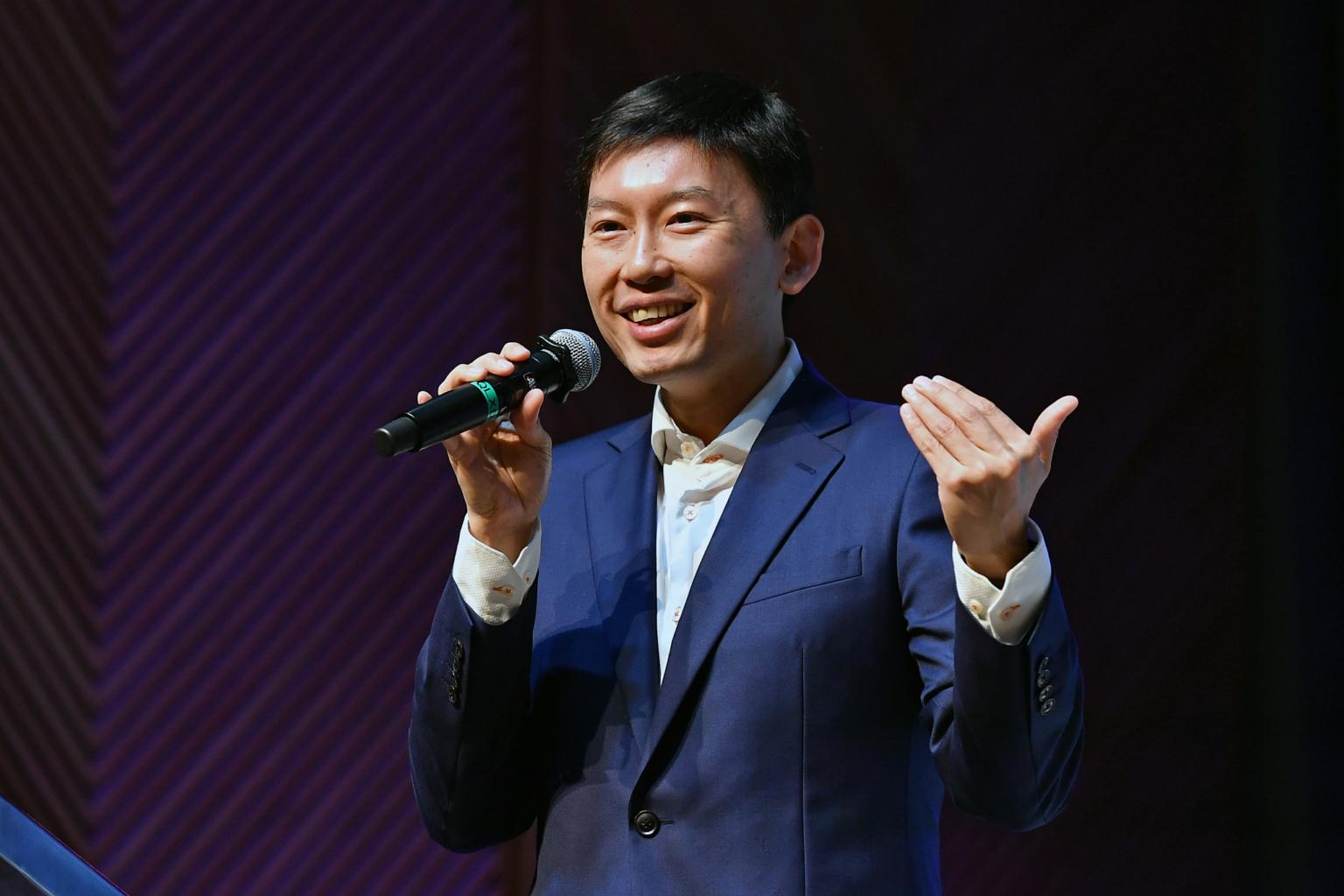Trade associations can be voice of industry, help create pro-business environment: Chee Hong Tat
Sign up now: Get ST's newsletters delivered to your inbox

Senior Minister of State for Trade and Industry and Education Chee Hong Tat said collaborations among the Government, TACs and businesses, unions and workers lead to the greatest chance of success in transforming the economy.
ST PHOTO: CHONG JUN LIANG
Follow topic:
SINGAPORE - It is not just booze but some foods, such as certain flavours of ice-cream, also come under current rules that prohibit alcohol sales after 10.30pm.
The rules could be made more flexible, suggested Ms Wong Peck Lin, the founder of Udders Ice Cream, at a recent dialogue facilitated by the Singapore Chinese Chamber of Commerce and Industry (SCCCI).
Such feedback has led the authorities to look into an exemption for food items containing alcohol that has a low chance of alcohol abuse, said Mr Chee Hong Tat, Senior Minister of State for Trade and Industry and Education on Friday (Nov 2).
"There is also a direct impact on cost, because there are businesses like Udders and other ice cream shops that have to apply for liquor licenses ... that cost $880 per year. With this change, they no longer need to apply for the liquor license and can save on this licence fee," he added.
He cited this as an example of how trade associations and chambers (TAC) can do more to lead industry transformation and engage with the Government to help create a pro-enterprise environment.
"We need to understand how our current rules need to improve to be able to support new business models, to understand where the pain points for businesses are, and also how we can help our enterprises reduce costs, improve productivity and to be more competitive in the global market," said Mr Chee at the 6th Trade Association Congress held by the SCCCI at the Trade Association Hub in Jurong.
The chamber also held the inaugural Trade Association Hub Carnival, where 40 trade associations and government agencies set up booths to showcase ideas.
In his speech, Mr Chee said collaborations among the Government, TACs and businesses, unions and workers lead to the greatest chance of success in transforming the economy.
He said: "We want to have a pro-enterprise, pro-innovation environment which can help Singapore keep our competitive edge in an increasingly globalised economy. With such collaborations, what each individual actor can bring to the table can be multiplied throughout the entire business ecosystem.
"This is why it is so important that we have innovative, well-organised and able TACs in each sector, to be industry champions leading industry consolidation, capability development and training."
SCCCI has 5,000 corporate members and more than 160 trade association members, which represent over 40,000 companies from a range of trades and industries.
The chamber, which chairs the Trade Association Committee, will also continue with initiatives that bring trade associations together to share ideas.
SCCCI president Roland Ng said its role is to support the trade associations to strengthen their capabilities, citing the example of its digitalisation project for these groups.
The chamber, with four trade associations, came up with a platform for individual trade associations to adopt a common membership and event management system, instead of having to invest in technology on their own.
Mr Francis Lim, president of the Singapore Motor Workshop Association, said SCCCI helps open doors to other members so trade associations can share ideas with one another.
Group executive director of Singapore Furniture Industries Council Shermaine Ong added: "It is about cross-sharing best practices and bringing costs down for trade associations through collaboration."

